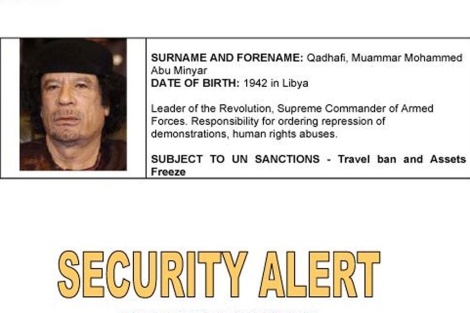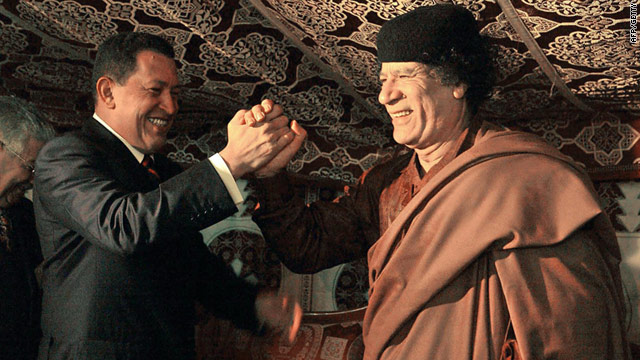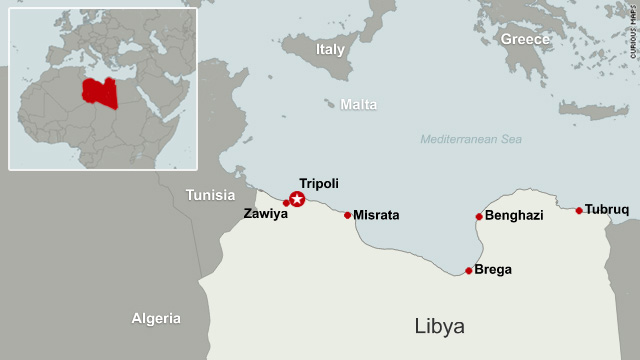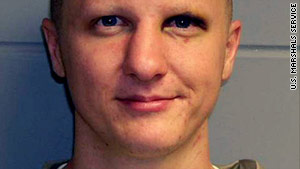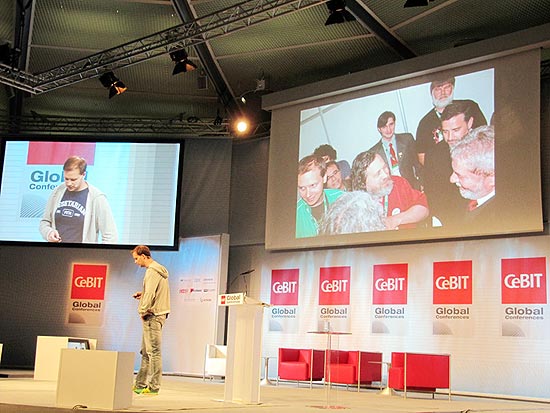Data de Publicação: 5 de março de 2011
Por: Marcone Formiga
Quando Juscelino Kubitschek foi eleito presidente da República, época em que o país começava a tomar o caminho para se tornar uma potência ainda em desenvolvimento, a democracia foi instalada, superando o trauma nacional decorrente do suicídio de Getulio Vargas, o ex-presidente que optou em deixar a vida para entrar na história. A largada para o progresso do país começou, porque o político mineiro também entraria na história, ao alavancar o Brasil para um futuro muito além do passado que ele encontrou.
Foi justamente no governo de Juscelino que a democracia e a liberdade de imprensa pareciam tomar um rumo promissor, sinalizando o surgimento de uma nova nação, que parecia consolidada depois que JK decidiu construir Brasília, fundamental para viabilizar o desenvolvimento no interior do país. Naquela época, a liberdade de imprensa foi testada a partir do surgimento de um menestrel com inspiração sem limites: Juca Chaves. Ele compunha músicas satíricas sobre o presidente mais democrático de toda a história do país. Juscelino construiu Brasília e transferiu a capital para o Centro-Oeste e o poder para seu sucessor,
Jânio Quadros. Este, por sua vez, renunciou poucos meses depois, passando o governo para seu vice, João Goulart, que acabou afastado pelo golpe de 1964. JK se exilou, e o resto já se sabe.
Após o golpe militar, o menestrel Juca Chaves, percebendo que os ditadores não assimilariam suas ironias e suas críticas, ciente de que seria perseguido, optou em sair o quanto antes do país, antes de ser vítima da intolerância dos generais sobre os poetas.
Tantos anos depois, na pérgula do Hotel Nacional, em uma manhã chuvosa, Juca concedeu a entrevista que segue, contando os fatos que presenciou como testemunha da história e do país contemporâneo.
- O que mudou de Juscelino a Dilma?
- Cinquenta anos, quando o Brasil tinha 40, 50 milhões de habitantes. Um dos maiores problemas do Brasil é o excesso populacional, e continua sendo um país feliz. Se continuasse tendo 80 milhões seria melhor, o que já é uma população muito numerosa.
- Mesmo com esta dimensão territorial?
- O Canadá é muito maior do que o Brasil e, no entanto, tem 60 milhões de habitantes. Outro dia, Elsimar Coutinho falou uma coisa que me impressionou: “O Brasil não tem pouca escola, tem muito aluno, não tem pouco hospital, tem muito doente”. Se o Brasil tivesse hoje uma população menor, que poderia ter sido viabilizada com um controle de natalidade eficiente e a planificação familiar, o próprio salário seria maior. Quando se fala em salário mínimo, é preciso raciocinar que é necessário dividi-lo por 200 milhões. A Unesco afirmou, nestes dias, que 80% da população brasileira é semianalfabeta. Os outros 20%, digo eu, são de bêbados!
- Quer dizer, a crise é nacional?
- A dificuldade é causada por tanta gente. Por exemplo, o problema da imensidão da nossa frota. Todas as cidades do Brasil estão saturadas de automóveis. Quando o Lula falou que o pobre tem o direito de dividir o carro, ele esqueceu que, em Paris, só o pobre tem carro, porque o rico vai de metrô, uma vez que tem uma condição melhor. Se houvesse metrô bom por aqui, correndo por Brasília, o trânsito seria menor. Quantas horas a gente perde na vida indo de um lado para o outro em condições precárias? Distâncias absurdas percorridas pelos velhos ônibus, com sua fumaça. Houve até uma melhoria quando o Jânio Quadros colocou os ônibus elétricos no Brasil, em São Paulo, depois tiraram...
- Por quê?
- Quando há um surto de evolução, forças contrárias diminuem este impulso de progresso. Por exemplo, uma das responsáveis pela estagnação cultural do Brasil é a TV, aliás, as emissoras de televisão. Para a imprensa, é pior! Se eu fosse a presidente da República, eu mandaria chamar todos os diretores de televisão e diria assim: “Vocês têm 24h para mudar essa programação!”. Se respondessem: “Ah, 24 horas não são suficientes”, é porque eles não têm talento. O brasileiro acha que para se fazer uma casa precisa de um ano. Nos EUA, se constrói uma casa em quatro meses. Por que aqui demora dois anos? Há uma incompetência em certos setores. A TV foi um mal para o Brasil, e não o bem que deveria ter sido, porque ela empurra coisas ruins para a população. A programação é um exemplo. Com tantas emissoras de rádio e de TV, mais de 1.200, não há uma sequer que apresente boa música, como ensaios de orquestra.
- Como é essa programação?
- Péssima! O Brasil é um país que não gosta de música, não sabe cantar, é desafinado. Basta você perguntar para alguém do povo: o que é música? Uma menina responde que é balançar a bunda, enquanto o cara diz que é balançar a mão. Para resolver isso, a música deveria ser ensinada na escola. O brasileiro não canta, ele grita. Ele não dança, a não ser o negro, que foi a melhor coisa que o Brasil já teve. Se o Brasil tivesse dado valor a quem realmente construiu o país, que foi o escravo, que não veio porque quis, o Brasil seria outro...
- De quem é a culpa?
- Do herói português que expulsou o holandês. Se Maurício de Nassau tivesse continuado a grande obra, seria algo fantástico! Ele era um cara incrível! Primeiro, porque dizem que ele não era nem holandês, era um judeu alemão que fugiu da inquisição. A Holanda era a grande capital cultural do mundo na época. E Maurício de Nassau, quando veio ao Brasil, não veio para roubar, ele veio para ficar. Trouxe médicos, geólogos, músicos e uma vasta cultura... Recife era uma das maiores cidades das Américas! Mas nós copiamos a ideia portuguesa de morar junto, apertado. Na Amazônia, o governo distribui terra para o povo morar e todos moram uns colados aos outros, em uma necessidade de ficar unido e apertado.
- Qual é a diferença com os demais?
- Os paulistas, por exemplo, quando viajam, vão seis famílias juntas, tudo agarradinho, falando alto, gritando. Brasileiro é muito gozado, é um espécime raro. Agora, vejo que o país mudou não tanto quanto poderia ter mudado. Adoro Brasília, porque ela é uma ideia nova. Um dia, o Oscar Niemeyer me disse assim: “Mas todo azul, quando os militares colocaram, é muita coisa”. E isso não foi seguido...
- O senhor está se referindo à geopolítica?
- Quando desembarquei aqui, em Brasília, um táxi passou em frente ao Palácio do Planalto e daí eu pensei: “Engraçado, quem é que botou essas sinaleiras todas até aqui? Deve ser parente de alguém...”. O Brasil vive o chamado da família, não é? Por exemplo, não sei quem foi o “inteligente” que bolou a tomada nova para o Brasil. Deveríamos seguir a tomada de três pontas, que é a ideal e o Brasil nunca teve, porque não tinha a inteligência necessária para ter. Já existe uma tomada mundial, e o Brasil resolveu fazer a dele. E aí indago o que ninguém perguntou ainda: “Quem mandou fabricar essas tomadas, e com quem? Qual é o parente?”. Temos uma tomada que não serve, nem a moderna, nem a antiga. Existem 200 milhões de habitantes no Brasil. Logicamente, existem, no mínimo, 200 milhões de tomadas. Multiplica-se por quatro... Quem é que fez isso? Quem faz as placas das ruas desse jeito?
- O motorista achou difícil o caminho?
- Errou o caminho exatamente por isso, porque sinalizava para um lado e era para o outro. Eles não sabiam o que era esquerda e direita. Aliás, poucos sabem. Por que não se institui o “ministro das placas”? O Brasil precisa contratar um alemão quadrado para fazer as placas de rua. Quem não sabe não chega. As placas são feitas para quem já conhece o caminho. Então, não precisa delas. A gente vai se divertindo, porque existe o lado bom e o mal. É preciso aproveitar e desenvolver mais esse lado bom.
- O que o senhor quer falar diante de tudo isso?
- Eu acho que o Brasil não precisa de carro, precisa de educação. No meu ponto de vista, quando me candidatei em São Paulo, meu projeto era controle de natalidade e planificação familiar. Isso deu certo no mundo. Seria também educação, música nas escolas e também acabar com o preconceito. O brasileiro é preconceituoso. Discrimina raça, música... Uma vez, o Boris Casoy me contou quando o diretor da Folha de S. Paulo mandou que ele fizesse uma entrevista comigo. Pegou o repórter e falou: “Vai entrevistar o Juca Chaves”. O repórter respondeu: “Ah, mas logo ele?”. E o diretor perguntou por que o Boris Casoy tinha alguma coisa contra. O repórter disse: “Ele tem um Jaguar”.
- O que o seu Jaguar tem com isso?
- Eu concluí que meu problema era que eu não poderia ter um Jaguar! Imagine, um artista tem um Jaguar! O artista tem que ser pobre, como são os grandes artistas brasileiros, aqueles que disseram que foram cassados na ditadura. Foram cassados, mas, na verdade, viveram muito bem lá fora, porque eu sei que, quando eu saí, saí para trabalhar, porque sabia que ia ser cassado pela Marinha, pelas críticas contra a compra do porta-aviões, um sucatão inglês da Segunda Guerra. Depois do golpe militar, o meu nome já estava na lista de procurados do governo, e o meu pai soube disso pela Maçonaria, porque ele era maçon. Eu caí fora antes porque sou inteligente. Não quis esperar a perseguição.
- E como foi sua vida no exílio?
- Trabalhei muito. Vivi lá fora com os frutos do meu trabalho. Não aceito propina! Engraçado, vi tanto brasileiro vivendo bem por lá no exterior que a palavra “cassado” virou uma alegria na classe artística. Hoje, o artista é muito artista e faz pouca arte, porque muitos produtores querem ganhar até 50% do lucro do artista. Todas as vezes em que me fazem uma proposta, eu falo que quero 50%, porque eu conto com a Lei Rouanet. Faço tudo certinho. Então, sempre que uma pessoa estranha, ela fala assim: “Eu arrumo patrocínio da Petrobras ou da Eletrobrás para você, mas eu quero 40%”. Existem firmas em São Paulo que anunciam 40%. Eu respondo assim: “Quem vai me levar sanduíche na cadeia?”.
- Qual é a sua convicção diante dessa realidade no mercado artístico?
- É muito gozado... O Brasil é um país altamente corrupto, mas a corrupção não é só da classe rica, dos poderosos, começa por baixo. Muitos brasileiros adotaram a corrupção. Ela é maravilhosa quando a gente está dentro, fora, se estrepa. Os poucos honestos e sérios são “cacetados”. Tenho uma música em que falo nisso: “No Brasil, todo malandro pensa que é esperto, mas, se descoberto, o cidadão privilegiado, sim? A lei existe, deve ser cumprida, certo? Não! Ao que parece, favorece só o errado, quem é, quem é o culpado?”.
- Ou seja, trata-se da cultura da esperteza?
- É, e quem é esperto, por certo, é prestigiado. Isso é o que eu acho mais gozado. Claro que existe muita gente séria. Por exemplo: o professor, a figura mais importante em países mais cultos do mundo. Ele é o “sir” na Inglaterra. No Brasil, é o que menos ganha. Não acho justo um cara vir consertar meu computador e pedir R$ 600, e o médico, que estudou cinco anos, teve que pagar para ser médico, pede em uma consulta R$ 200, e cai o “cacete” em cima deles. Mas o Brasil não gosta de médico, gosta de curandeiro, que é muito melhor. Quando um cara na TV diz: “Você está mal, venha para nós, porque nós curamos você”, é muito melhor o cara pensar: “Poxa, é pouquinho, o dízimo é tão barato...”. É um país divertido. Agora, eu fico triste porque é difícil encontrar um lugar sério. Por exemplo, eu não faço TV. Todo mundo me pergunta por que, mas eu respondo: “Porque não me convidam...”.
- Só por isso?!...
- O que o programa tem? Novela. O que a novela faz? Ela faz que as pessoas vejam e ouçam 150 capítulos e não guardem uma frase sequer. Eu já falei assim: “Diga para mim uma frase que tocou você nessa novela que você ficou sete meses assistindo”, e a pessoa não se lembra. Se as emissoras dessem espaço nestas horas para os bons artistas, porque eles existem, se colocasse os clássicos, seria ótimo! Os produtores dizem que vão criar algo realmente útil e não criam. O humor é a mesma coisa, piorou. Agora, temos o “Stand Up”, que eu estou fazendo também, porque quis provar isso para a minha mulher. Ela me perguntou por que eu não fazia, e eu faço há 50 anos. Stand Up não é de hoje: ele nasceu em 1934, nos EUA, é o karaokê do humor. O cara levanta e faz o que ele quer, o nível depende da cultura das pessoas, porque se elas têm um nível cultural maior, o espetáculo acontece. Existem uns cinco ou seis muito bons, porque se faz aquele texto coloquial... O Zé Vasconcelos fazia isso, o Chico Anysio também, que é nosso grande mestre e foi colocado para a reserva, uma maldade o que fizeram com ele...
- Como está o emocional do Chico Anysio?
- Uma vez, perguntei para ele: “Por que você se casou com uma moça que não tinha alegria?”. Ele me respondeu: “Foi um erro meu. Eu me casei com a ministra e acordei com a Zélia”. É a frase genial. Ele sofreu muito, e sofre ainda, ele compra o sofrimento. Eu também sou humorista por ter humor. Não me considero um grande humorista, mas tenho humor. Aliás, é um problema de quem tem, como o Millôr Fernandes, que é um cara bom demais até para quem escreve. Ele é genial! O Brasil tinha grandes humoristas. O Pagano Sobrinho, em São Paulo, foi cortado da TV. Temos poucos e bons, mas temos que aproveitar mais. Uma vez, eu quis editar um livro. Procurei a Record, uma das editoras, o cara lá me falou: “Não trabalho com pessoas que fazem piadinha”. E eu falei: “Mas eu não faço piadinha”. Ele nem sabia o que eu fazia! É muito gozado: você tem as pessoas erradas nos lugares certos.
- E o Lula? Qual é a sua imagem dele?
- Ele é um fenômeno! Um sujeito para quem tudo deu certo. A única coisa que não deu certo, às vezes, é a interpretação dos outros, que deram a coisa no ouvido dele. Por exemplo, ser amigo do Ahmadinejad, das Farc, do “titio” Chávez, este então é tão bonzinho... [risos]. O Chávez é tão bacana que ninguém reconhece que ele fez uma TV só para ele, acham que é só um ditador... A esquerda brasileira adora, ama, venera os ditadores. Quando eu falava isso, diziam que eu era politicamente incorreto...
- E o Getulio Vargas?
- Pai, pai de todos. Vejo na Dilma uma surpresa. Quando ela foi eleita, muita gente pensou que fosse uma continuidade do Lula. Que nada! A primeira coisa que ela fez foi eliminar a chamada “parte negativa”. E o Lula teve muita coisa positiva, muita! Tudo o que ele fazia deu certo. É um cara que nasceu com a estrela, como o Pelé. Até nas coisas erradas que diz, no final, dá certo. O Lula foi uma surpresa, ninguém esperava. Economicamente, o pessoal era muito bom. No tempo do Lula, o presidente da República era o Zé Dirceu, todo mundo sabia. A gente fica sabendo de coisas que a imprensa não sabe. Quando ia estourar a revolução no Brasil, a Maçonaria já sabia antes. A imprensa não sabia, os militares não sabiam... No entanto, a coisa aconteceu. As notícias antes não corriam...
- E agora, como fica?
- Agora, em Brasília, as notícias voam! Por exemplo, você faz xixi no muro da esquina e o cara fica sabendo, porque Brasília é uma fofoca, mas é divertido. Eu gosto daqui, eu moraria aqui, já falei isso. A Iara teve medo, na época, porque houve o boato de que em Brasília existe muito divórcio, e ela ficou apavorada. Eu gosto daqui, cada vez mais, todas as vezes em que venho para cá...
- Mas muita gente achava que a presidente seria monitorada pelo Lula...
- Não, pelo contrário! O que mais gostei foi que, quando ela entrou no governo, a primeira coisa que fez foi trabalhar sexta, sábado e domingo. Isso aqui era uma moleza, todo mundo queria ser senador para trabalhar quarta e quinta, apenas. Todo mundo comentava isso. Uma jornalista brasileira foi entrevistar um deputado sueco e perguntou a ele: “Você não tem ajudante? Quantas pessoas trabalham com você?”. Ele respondeu: “Nenhum”. Ao ser perguntado se ele ganhava bem por isso, ele respondeu: “Um salário mínimo, porque nós temos orgulho de servir à nação”.
- Qual é a diferença entre o homem e a mulher no poder?
- A mulher tem mais força de vontade do que o homem. Aliás, vou contar um negócio para você: homem, sem mulher, não é nada, nem corno! [risos]. Agora, o homem é machista no Brasil, tem muito preconceito contra a mulher. O Brasil é preconceituoso contra o pobre, o negro, o judeu, o honesto, contra tudo... Tudo é preconceituoso. Por quê? O que é o preconceito? É o início da ignorância.
- A mulher está mais liberal no Brasil?
- Liberou-se, embora o papa tenha chegado aqui e tenha tentado “desliberá-la” completamente [risos]. Uma pena, porque o número de cristãos diminui para crescer o número de evangélicos. O evangélico é mais inteligente. Enquanto os católicos pregam Deus em latim ou, como nós, judeus, que acreditamos que Deus é único, porque instituímos o monoteísmo, bem longe espiritualmente, o evangélico prega Deus e o coloca ao seu lado, resolvendo seus problemas sexuais, morais, econômicos...
- Por quê?
- Porque foi uma forma rápida e inteligente, como construir cabana. Isso mudou o conceito mundial. O bispo Macedo criou uma religião nova, porque a forma dele é completamente diferente até do evangélico tradicional. Até me contaram uma história muito boa: o cara estava vendo TV e chegou um amigo e falou: “Você! Você! Sua mulher deixou você. Sei que você está no fundo do poço, sem dinheiro. Pense positivo! Pense que tem um irmão siamês, que está grudado com você há 18 anos! E você percebeu, pela primeira vez, que ele é gay. E você percebeu também hoje que esta será a primeira noite sexual dele. Você percebeu também que vocês dois juntos só têm uma bunda [risos]. Eu agora volto a perguntar: você ainda acha que tem problemas?” [risos].
- O que mudou para o homem e a mulher após o surgimento do Viagra?
- O Viagra mudou muito, principalmente a mulher honesta, que só tinha no seu homem as suas realizações sexuais. O homem brasileiro brocha muito cedo, com 30 ou 40 anos! E o Viagra fez que ele elevasse seu poder. Quem saiu ganhando foi ela. Você vê que ela ficou com a pele mais bonita. A mulher melhorou em si. Quando o Viagra chegou, o italiano de São Paulo, torcedor do Palmeiras, falou: “Ah, ontem tomei duas daquelas pílulas azuis, fiquei embaixo do lençol, ele subiu, subiu, e minha mulher falou ‘que belo, Marcelo, façamos amor’!”. E ele querendo mostrar para os amigos que não era mais bocha. No dia seguinte, tomou outros dois comprimidos e fez a mesma coisa. A mulher entrou peladinha na cama e ele falou: “Ah, te reconheceu!”. É uma forma de você colocar a própria evolução como forma de cultura.
- Continua prevalecendo os dois Brasis: aquele que degusta caviar e champanhe, e o outro, que só tem o que comer graças ao Bolsa Família?
- Eu acho que deveria mesmo era dar Bolsa Educação, isso sim! Dar uma Bolsa Família, com a obrigatoriedade de levar o filho para o médico, ser vacinado... Acontece que o pai pega o dinheiro e vai beber, fica bêbado e bate na mulher. Tal e qual o americano: bebeu, bate na mulher! Agora as mulheres contam com delegacias exclusivamente para elas e também com a Lei Maria da Penha, que ajudaram muito a reprimir a violência dos homens. Existe até uma quadrinha portuguesa que diz assim: “Não tens e não podes ter direitos iguais aos meus, Deus, que podia escolher, quis ser homem, para ser Deus!”.
- Isso é coisa de português ou brasileiro?
- Acredito que de português. Lembrei agora de outra quadrinha de um político português que diz assim: “Uns dizem que ela dá, outros pensam que talvez dê; na verdade, é deputada sem o dá e sem o dê” [risos].
- Por que suas farpas venenosas são muitas vezes disparadas em direção ao ex-presidente da República (e hoje senador) Itamar Franco?
- Minha bronca com o Itamar começou quando ele declarou que não gosta de Roma!!! Acho que ele foi o único brasileiro colocado em uma embaixada sem ter a menor vontade... Não merecia! Até porque Roma é um prêmio universal. Ele até chegou a afirmar que não gostava daquela bela cidade porque tem muitas estátuas. Não deveriam ter mandado Itamar Franco para Roma, mas sim o Juquinha! O Itamaraty instala por lá personalidades que não têm nada a ver com a vida, porque um embaixador quer tudo menos se intrometer, não quer confusão...
- Já que estamos em um tempo de carnaval, o que você vê hoje?
- Começa pela mediocridade musical e pela exibição de bunda, que é algo desnecessário. O carnaval brasileiro deveria ser alegre. Até mesmo o carnaval de Veneza, que é chato, tem mais alegria, como também o carnaval de New Orleans, que é muito divertido, mas muito mais mesmo. O nosso carnaval perdeu muito a graça, só tem alegorias, não tem samba, que foi substituído por marchinhas. É uma pena que seja assim.

Sphere: Related Content

![Validate my Atom 1.0 feed [Valid Atom 1.0]](valid-atom.png)
























































